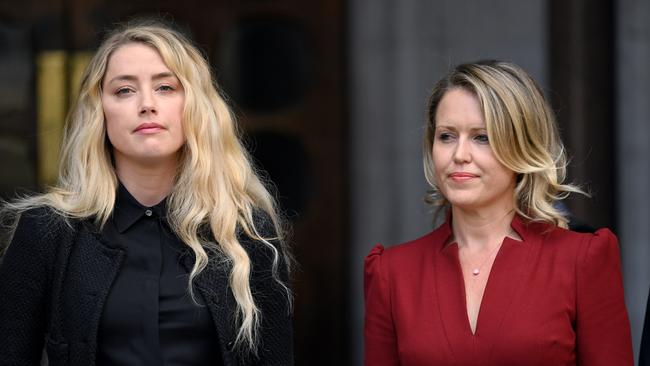
Wednesday, June 26, 2024, 7.37pm, and flight VJT199 touches down at the Fairbairn defence base, Canberra. Onboard the chartered jet, Australian international human rights lawyer Jennifer Robinson feels the wheels hit the tarmac beneath her, as her phone starts to ring … and ring.
The first call that comes through is from her father Terry, the second is from Anthony Albanese. Robinson exchanges greetings with Albanese, then hands the phone over to the man sitting next to her.
“Thank you,” Julian Assange tells the Prime Minister, “there’s no doubt you saved my life.”
And as a white haired and clean shaven Assange exits the plane to greet his family and the waiting press pack, Robinson breathes out, an exhalation some 14 years in the making.
“I became emotional when we landed,” Robinson, 43, currently in her home town of Berry, New South Wales, recalls.
“I had held it together the whole time, but as soon as we touched down I have to admit I had a few tears. Julian was finally home, and it had been such a long, long fight to get him there.”
Robinson has been there for Assange from the beginning, representing the WikiLeaks founder’s fight for freedom since 2010. As a lawyer working in Geoffrey Robertson, KC’s prestigious London Doughty Street Chambers, Robinson first met Assange in Robertson’s home.
Robertson said of the fair-haired man sitting at his kitchen bench: “He’s going to need our help.” And so began – with prescient understatement – the legal saga of Julian Assange, a tale so extraordinary that, as Robinson says: “You couldn’t make up a better scripted story if you tried.”
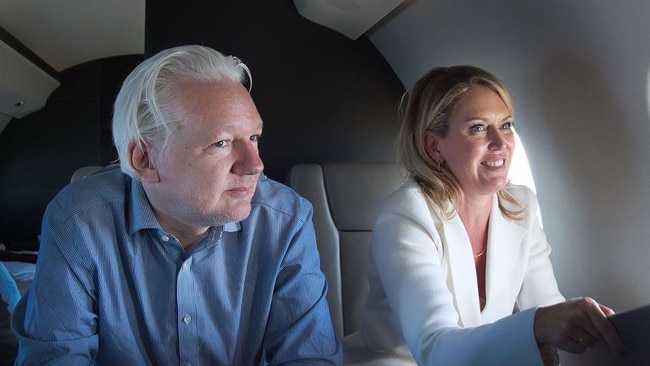
And to understand just what Robinson took on when she took on Assange’s case, it’s necessary to go back to 2006, when Queensland-born Assange, now 53, co-founded WikiLeaks, the web-based dropbox system where whistleblowers could provide information which the organisation – once verified and deemed in the public interest – would publish.
In 2010 it released hundreds of thousands of classified documents relating to US involvement in wars in Iraq and Afghanistan, provided by a US military insider, Chelsea Manning.
The leak eventually saw Manning sentenced to 35 years in prison – a sentence later commuted by then president Barack Obama in 2017.
Also in 2010, he faced allegations of rape, but was never charged.
Assange denied the allegations, but a British court ordered his extradition to Sweden.
In 2012, when his appeal against this extradition failed, Assange breached his bail, sought, and was granted, political asylum in the Ecuadorean Embassy in London. He would remain there for the next seven and a half years.
The Swedish government would announce in 2017 that the case against him was being dropped, but in 2019, British police would enter the Embassy to detain Assange for “failing to surrender to the court” in 2012.
Assange was taken to Belmarsh Prison in May, 2019 where he would spend the next five years in a 2x3m cell, allowed out for one hour a day.
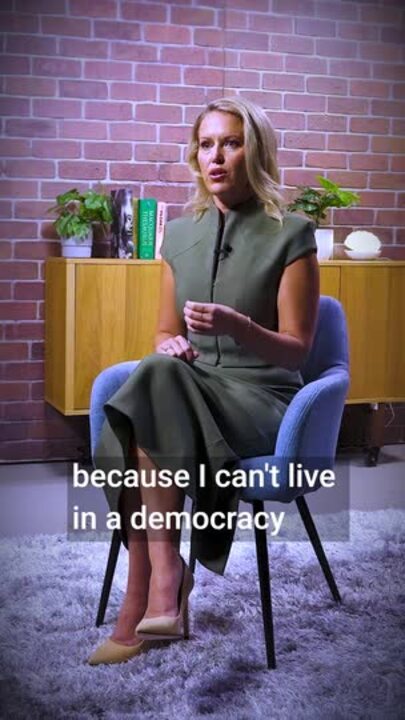
Also in 2019, the US government would indict Assange for violations of the Espionage Act over the leaked US military documents, and request his extradition.
And all the while, Robinson and her legal team would launch appeal after appeal to secure their client’s freedom.
Perhaps the best way to illustrate this is that Robinson briefed six prime ministers during this time on her client’s behalf – Julia Gillard, Kevin Rudd, Tony Abbott, Malcolm Turnbull, Scott Morrison and Anthony Albanese. But it wasn’t until Albanese became PM that things – somewhat surreally – came to their close.
“I sat with the PM (Albanese) in May 2023, and he said to me ‘I have been raising this, there is a deal to be done’. We had been trying to have a conversation with the US Department of Justice (DOJ) but they would not engage. Kevin Rudd was in Washington as Australian Ambassador, and we flew to meet with him. And I remember thinking: ‘Now we have the Australian government, now we have Kevin Rudd in DC’, and it was the first time I thought: ‘We can get something done here’,” Robinson recalls.
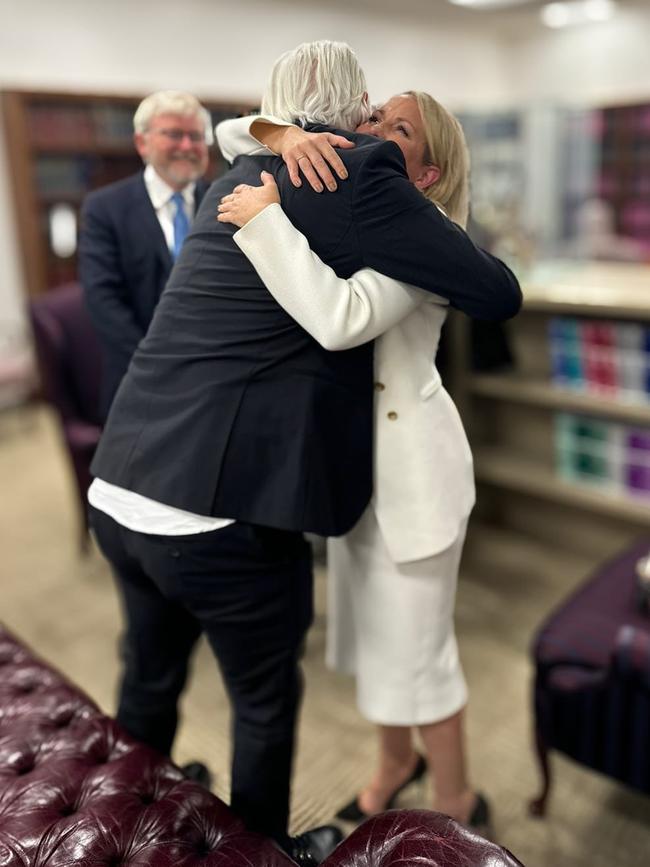
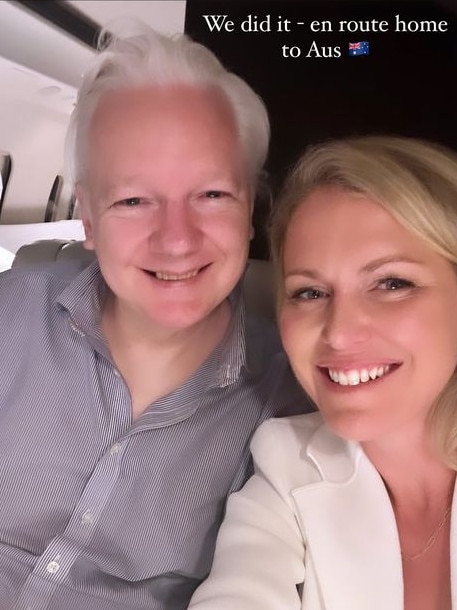
That something was (after a year of back and forth negotiations between Assange’s legal team, the US DOJ and British prosecutors) a deal where Assange would plead guilty to one count of Conspiracy to Obtain and Disclose National Defense Information under the US Espionage Act.
In return he would be sentenced to 62 months in prison – time already served at Belmarsh Prison – and the extradition order would be withdrawn. To do so, he had to travel to a US jurisdiction, but with Assange reluctant to set foot on the American mainland, the case was instead heard in a courtroom on the small Pacific island of Saipan, the closest US jurisdiction to Australia.
“Our red line was that we were never going to go to the United States,” Robinson says, “because Julian was understandably nervous of going there, and we had to assure him he was protected and that he would absolutely be allowed to go home.”
Arriving in the small courtroom in Saipain, presided over by Judge Ramona Manglona, Robinson says she remained nervous. “She (Manglona) still had to accept the plea deal, but then just watching her demeanour toward Julian, the kindness with which she spoke to him …” Robinson pauses, then smiles broadly.
“She said: ‘This ends with me today. It’s your birthday soon, go home and enjoy your birthday in Australia’.”
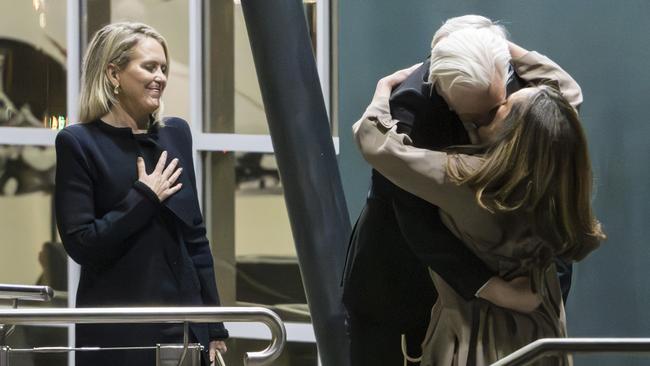
‘OUTRAGEOUS’ BEHIND-THE-SCENES REALITY
And so, to that tarmac in Canberra, andAssange walking into the open arms of his wife Stella Assange’s embrace. If you look at news footage of that reunion, you can see Robinson just behind the couple, her hand on her heart.
Stella Assange, a human rights lawyer, met Assange in 2011 while working as part of his legal team. The couple’s children Gabriel, now seven, and Max, five, were both conceived in the Ecuadorean Embassy, with Robinson revealing how they kept the identity of their children a secret.
“For quite some time no one knew Stella and Julian were together. A male friend would bring Gabriel in when he was a baby under the guise that he was Julian’s Chinese tutor and a sole parent.” Robinson says authorities would “try to get the nappies so they could obtain the DNA”.
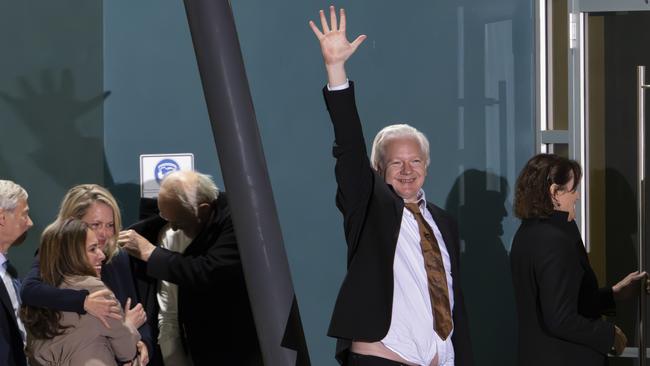
According to Robinson, it was just one of the many outrageous things that happened to Assange both at the embassy and in Belmarsh, including an alleged CIA plot to kidnap the Australian journalist in 2017.
“I thought surely this is the moment, this is the story that will break his imprisonment, but there was dead silence,” Robinson sighs.
“It was a low point, but there were so many low points; when the reports came out that he had not co-operated with the Swedish when in fact he had done everything correctly except return there because he was concerned he would be extradited to the States; when it was clear to us that Ecuador had done a deal, unlawfully letting the police in; when the reports came out that he had smeared faeces on the walls of the embassy, I remember thinking: ‘Wow, they’re going there’; that Julian was some sort of Russian spy.
“People were misled again and again, that he was living some sort of easy existence. He lived in a small ground floor flat for seven and a half years, with no outdoor area.
“In Belmarsh he was in the cell for 23 hours a day, he was very heavily medicated, he was depressive, we were very worried about suicide.”
Robinson says that one of the hardest things throughout Assange’s ongoing incarcerations was “to resist the normalisation of this situation, to keep feeling the outrage”.
“When this first kicked off, I remember speaking to a protest in Federation Square and there were thousands of people there, and slowly over time, the numbers grew less, people came and went, lawyers came and went, so it also became about keeping the flame burning,” she says.
Fortunately for Assange, he had Robinson in his corner, the 2019 co-recipientof the International Pro Bono Barrister of the Year award, who attended Canberra’s Australian National University (ANU) then won a Rhodes scholarship to Oxford University, and a woman not just very well schooled in law, but also in never giving up.
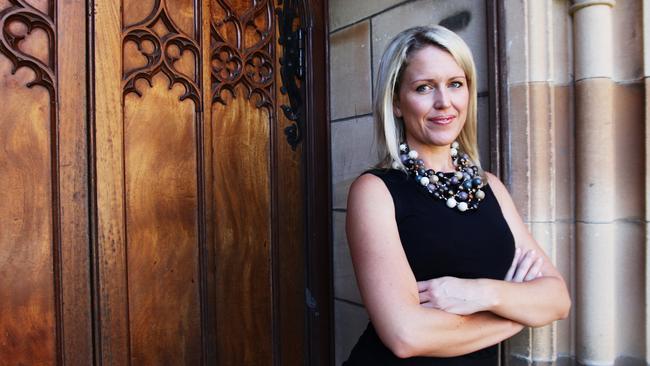
FROM THE TROTS TO OXFORD AND BEYOND
“The worst thing you could be called in myhouse growing up was lazy,” Robinson smiles, recalling her childhood in the NSW postcard-worthy town of Berry.
Her father, Terry, is a racehorse trainer and, at almost 70, is still up at 4am every day, doing trackwork with his horses, thundering down Berry’s beautiful Seven Mile Beach. Her mother, Lyndy, taught in local state schools (known in NSW as public schools) and remains a strong public school advocate.
From Robinson’s mother came her rock-solid belief in the value of free education for all, from her father, her rock-solid belief in hard yakka. The combination of both taking Robinson, a sporty kid who often went with her father to “the trots” on a Friday night, to the classrooms of her local Bomaderry High School to ANU (where she won the University Medal in Law) then Oxford University in 2006.
In its hallowed halls Robinson had to find her place in a place where her fellow students at Balliol College were markedly different – and indeed mostly fellows. “I was coming up as a woman from a rural area who didn’t come from wealth, surrounded by mostly men who had come from generations of privilege,” she says. “There was a dinner where the vice-regent talked about the long history of Balliol College and he said: ‘We let women into Balliol in the 1970s, so look around you, fellas, you could be sitting next to your future wife’.”
Had the fellows looked around and their collective gaze fell on Robinson, they would have been looking at someone who could often be found having dinner elsewhere. At her dear friend Benny Wenda’s place. Laughing and chatting with Benny, his wife Maria and playing with their baby daughter Koteka.
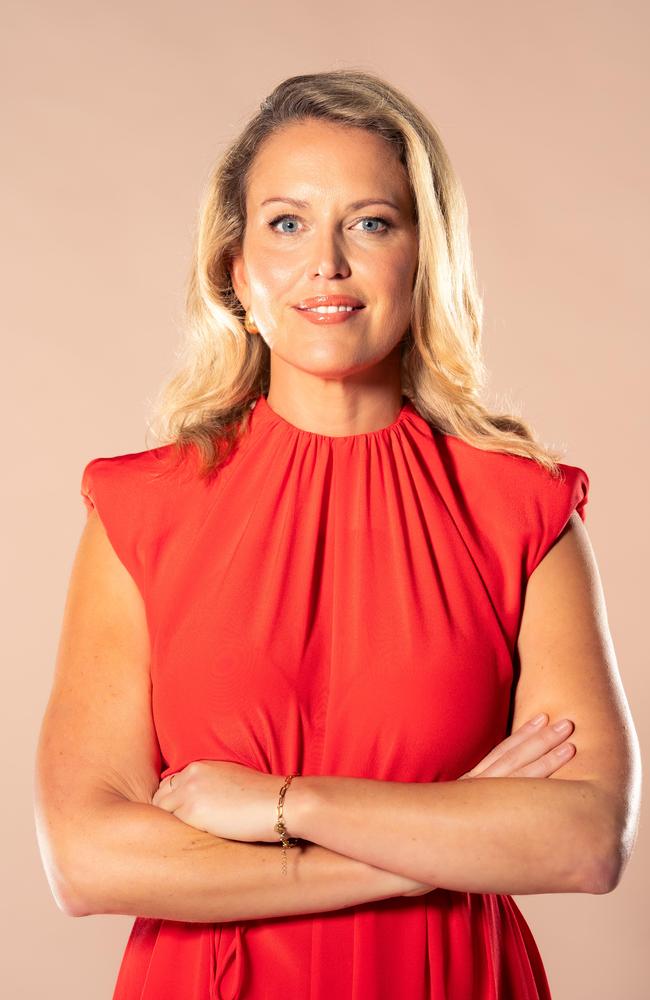
“I would regularly ride my bike over there,” Robinson recalls, “having them was a real lifesaver at Oxford for me.”
Which – although she means it metaphorically – is apt, considering Robinson played a huge role in actually saving Wenda’s. While at Bomaderry, Robinson studied Indonesian under one of the teachers she credits with her remarkable career, Lindy Fitzgerald.
A school trip with Fitzgerald to Indonesia later saw Robinson undertake a double degree in Asian Studies and Law at ANU.
In 2002, Robinson joined a study abroad program with the ANU and worked with a Human Rights NGO in West Papua, the country then, as now, occupied by Indonesia. There, she heard of the plight of Wenda, a leader of the Free West Papua movement, and imprisoned by the Indonesian military. After meeting Wenda, Robinson became determined to help, I covered my skin and hair with a hat or scarf to visit Maria in a safe house to discuss Wenda’s case
and the family’s safety. Through intermediaries, she also gave Maria enough money to help get across the border and into a refugee camp. At the time, Robinson was 21 years old.
Wenda eventually escaped from prison and the family was reunited in London, Robinson also eventually helping Wenda claim political asylum.
Helping Wenda had ignited Robinson’s passion for human rights, and when she returned to the ANU after her year in West Papua, it was with a renewed – and laser focused – vigour for law.
She won the Rhodes scholarship to Oxford and in her second year of studies was invited by Geoffrey Robertson to join his chambers. It is an exceptionally high-profile firm – Amal Clooney is also a barrister there — with Robinson also attending Amal and George Clooney’s 2014 nuptials in Venice.
Robinson’s time with the firm has seen her dubbed by the British press as “The A-list’s go-to lawyer”. It’s not a title she’s particularly fond of, but it is true she has represented some very well- known clients, including actress Amber Heard.
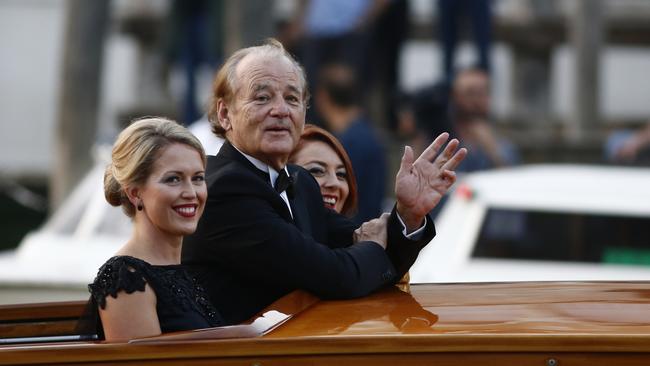
‘MOST DEMORALISING THING I’VE SEEN’
Robinson represented Heard in 2020, in Johnny Depp’s first defamation trial against Britain’s The Sun newspaper, over an article that called him a “wife-beater”. Robinson worked with Heard and the Suns’ counsel and the newspaper won the case. She remains devastated at what happened to Heard at a later trial, the 2022 defamation case Depp brought against Heard over an op-ed she had written in The Washington Post in 2018.
That trial, which the judge allowed to be televised and which Depp won, became an international media circus, from which Robinson says Heard has still not recovered.
“We became close during the UK defamation trial where the judge found she was telling the truth and that 12 of the alleged 14 counts of assault against her had occurred,” she says.
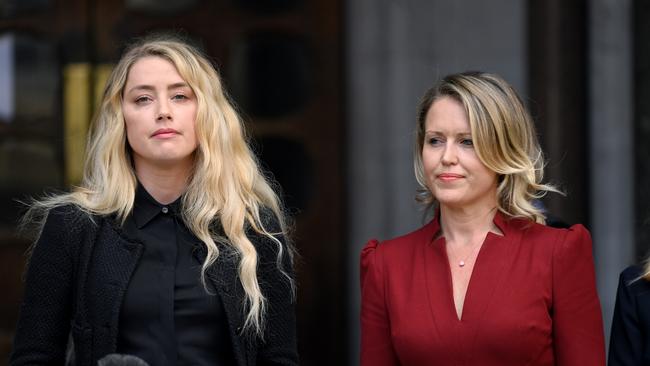
“So watching the US case was the most demoralising thing I have seen in my career. It was so frustrating, it was so poorly run. The way the judge allowed it to be run, the way material was shared online and the vitriol against Amber was like nothing I have ever seen before. The death threats, the disgusting threats of violence and rape against Amber, the horrendous way people spoke about her. I don’t know how you get over that.”
As Heard’s lawyer, Robinson also got death threats, insults, and violent messages: “You have a punchable face, just like Amber.”
“I have colleagues from around the world and women were telling them they were deterred from coming forward in their own cases of abuse because they saw what happened to Amber,” she says. “It made women even more unlikely to pursue what they saw as an incredibly difficult and murky legal path.”
So Robinson wrote a book about it.
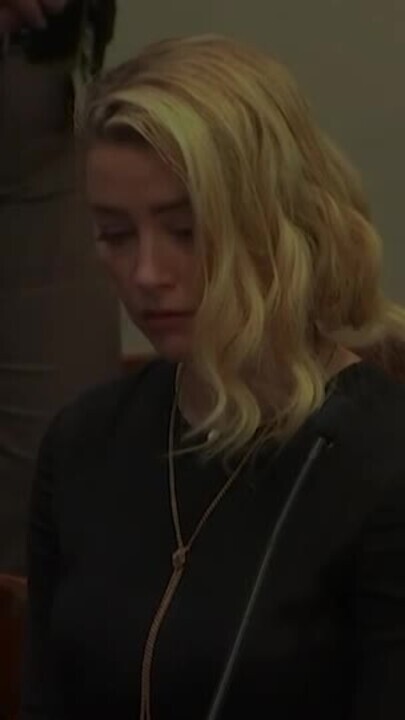
STRIVING FOR CHANGE
In October 2022, Robinson and her co-author, barrister Keina Yoshida released How Many More Women? How the Law Silences Women. An uncensored edition has just been re-released which includes previously redacted text around the Bruce Lehrmann Brittany Higgins trial.
Best described as a how-to manual to help women navigate the legal system, it details cases of sexual and gender-based violence against women around the world, including Heard’s. It also explores the case of a woman in the United Kingdom whose ex-husband successfully sued her for defamation after she attempted to warn hisnew partner of his history of violence
towards her.
It is cases like this that keep the seemingly inexhaustible Robinson going. That, and the hope that other young people just like her, will follow her not so well-worn path.
In 2020, Robinson, along with the Public Education Foundation, founded the Acacia Award. It is a scholarship/mentor-based program where promising students in public schools (state schools) are identified and given financial aid and professional mentoring.
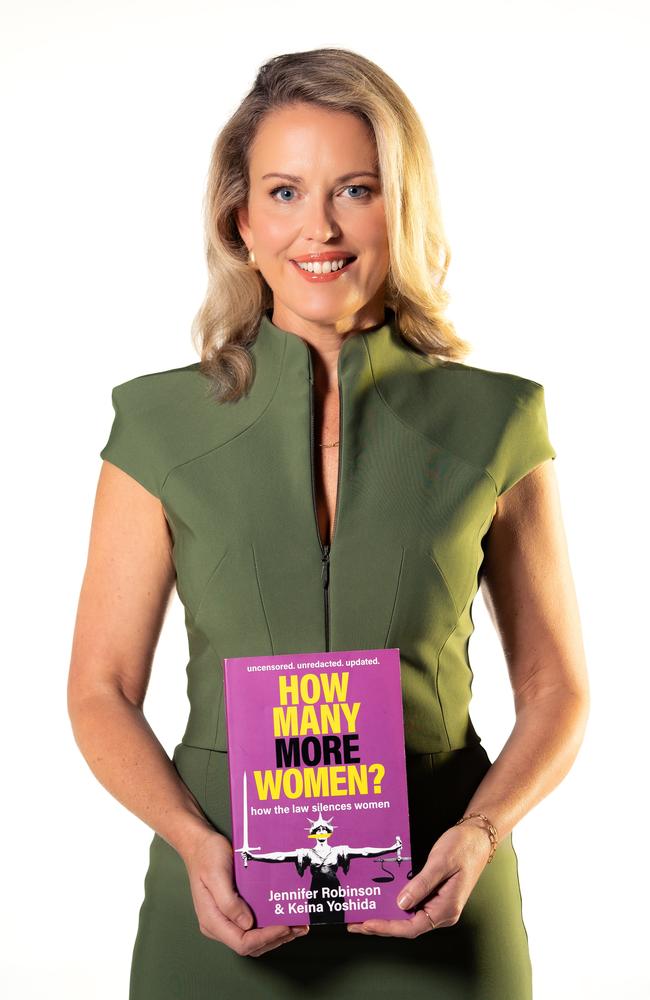
“What I saw in Oxford and what I continue to see in law and many other professions is that there are structural and financial hindrances to young people in the public system,” she says.
“Law in Australia, for example, is dominated by the same private schoolboys coming up to be lawyers and judges and I shouldn’t be the only public school kid in those rooms. So I thought: ‘What if we recreate the private school networks that exist and create our own? What if we have our own alumni? Our own networks?’ I shouldn’t be the only kid from Bomaderry High with a Rhodes scholarship.”
Robinson is back in her old stomping ground, visiting family and friends in Berry (she also owns a home in the region) before returning to London.
She will then travel to The Hague to represent Vanuatu in what she calls “the biggest problem in the world – climate change” in the highest court in the world, the International Court of Justice.
But right now, she is going for a surf, back in her beloved Pacific Ocean, back to being the kid from Bomaderry High, before she dives once more into the world’s most turbulent – and rising – waters.

Add your comment to this story
To join the conversation, please log in. Don't have an account? Register
Join the conversation, you are commenting as Logout
Stop being selfish – it’s time for daylight saving
I’m going to fire up with the angry mob concerned about faded curtains and cows but isn’t it time we got with the times?
The 10 words no teen girl should ever have to consider
Every morning, Jelena Dokic would wake up and think the same thing - 10 simple but haunting words that encapsulated both her nightmare and her survival.